TAL ABYAD, Syria — U.S. flags fluttered on the back of coalition armored vehicles as they whizzed past tiny hamlets in northeastern Syria. Once part of the sprawling territories controlled by the Islamic State group, the areas are now under threat of an attack from Turkey, which considers these villages’ liberators, the U.S.-backed Syrian Kurdish-led forces, to be terrorists.
To forestall violence between its two allies along the border it has helped clear of IS militants, Washington has upped its involvement in this part of Syria.
The armored vehicles patrolled border areas, zigzagging for miles between golden fields and mud and brick houses, escorted by their Syrian allies. U.S. troops inspected Kurdish-controlled bases to ensure trenches and sand berms, considered a threat by Turkey, have been removed. Then a drone, operated by the U.S. troops, filmed the area.
RELATED
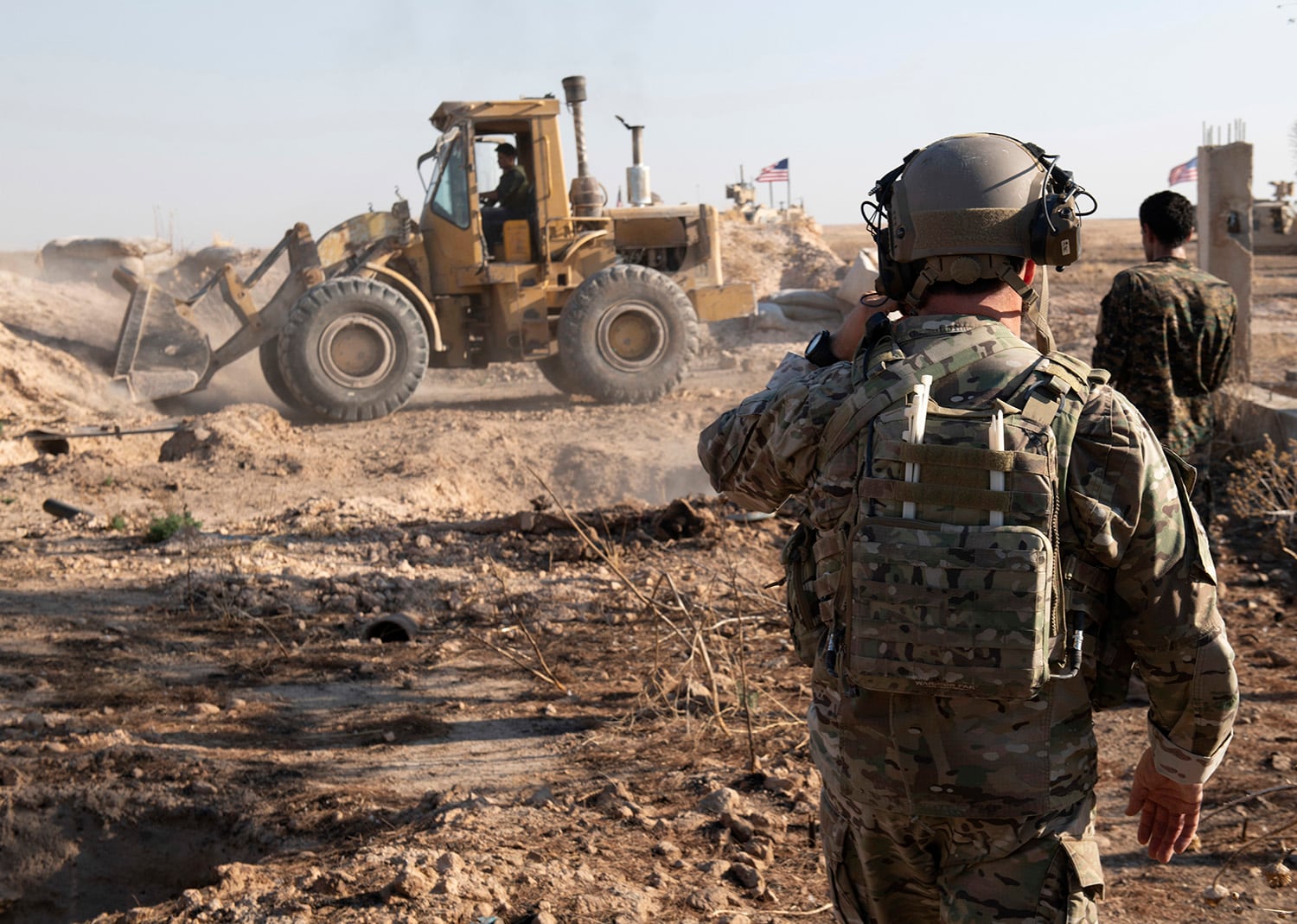
It is part of an agreement that has set up a joint operation room with Turkey to take measures to ease tension. But details of the deal are still being worked out in separate talks with Ankara and the Kurdish-led forces in Syria known as the Syrian Democratic Forces, or SDF. Views are widely divergent on the purpose of these measures, but Washington seems to be buying time to avoid a crisis along the border while its troops are still deployed in Syria.
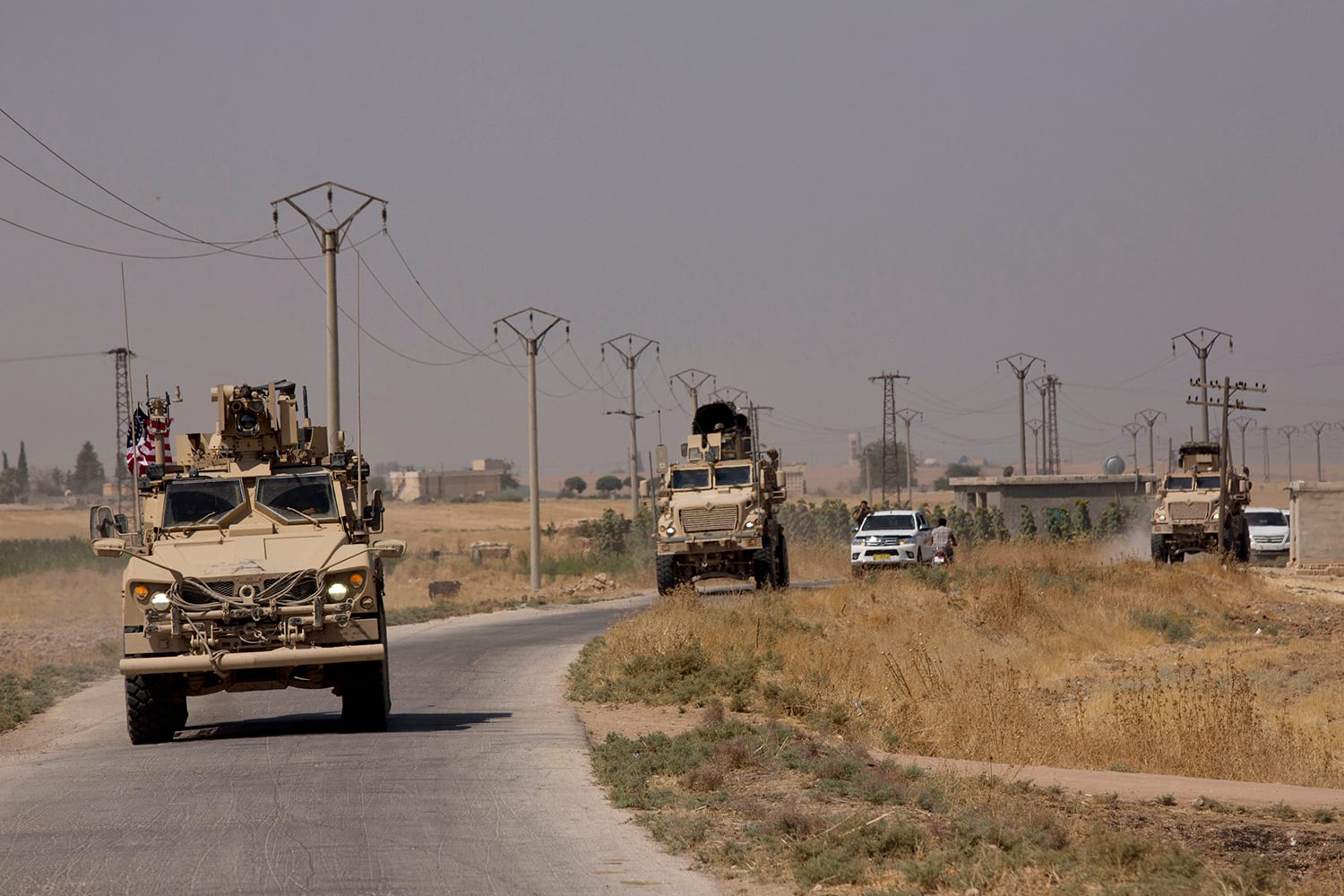
Associated Press journalists accompanied the coalition and the SDF on a day trip in northeastern Syria that offered a rare glimpse into the intricate mechanics involved in diffusing tensions in the flashpoint region and setting up the so-called safe zone.
“We have no problem with the security mechanism to secure our areas,” said Kurdish commander Khalil Khalfo, the head of the newly established Military Council of Tal Abyad, which is under civil administration. He has 500 fighters in his group, mostly from the Syrian Democratic Forces and its core People’s Protection Units, or YPG, which he is expected to replace. Turkey considers the YPG a terrorist group because of its links to Kurdish insurgents inside Turkey.
“We want to live in peace and if this is scaring Turkey, we will close it,” Khalfo said, pointing to the berm that surrounds his base. Two bulldozers were moving earth to close the trench around it and flatten the sand. U.S. troops filmed the base after the berms were flattened.
He said they had to return to this base Friday after Turkey complained the berms, about a kilometer from the border, were a threat.
RELATED
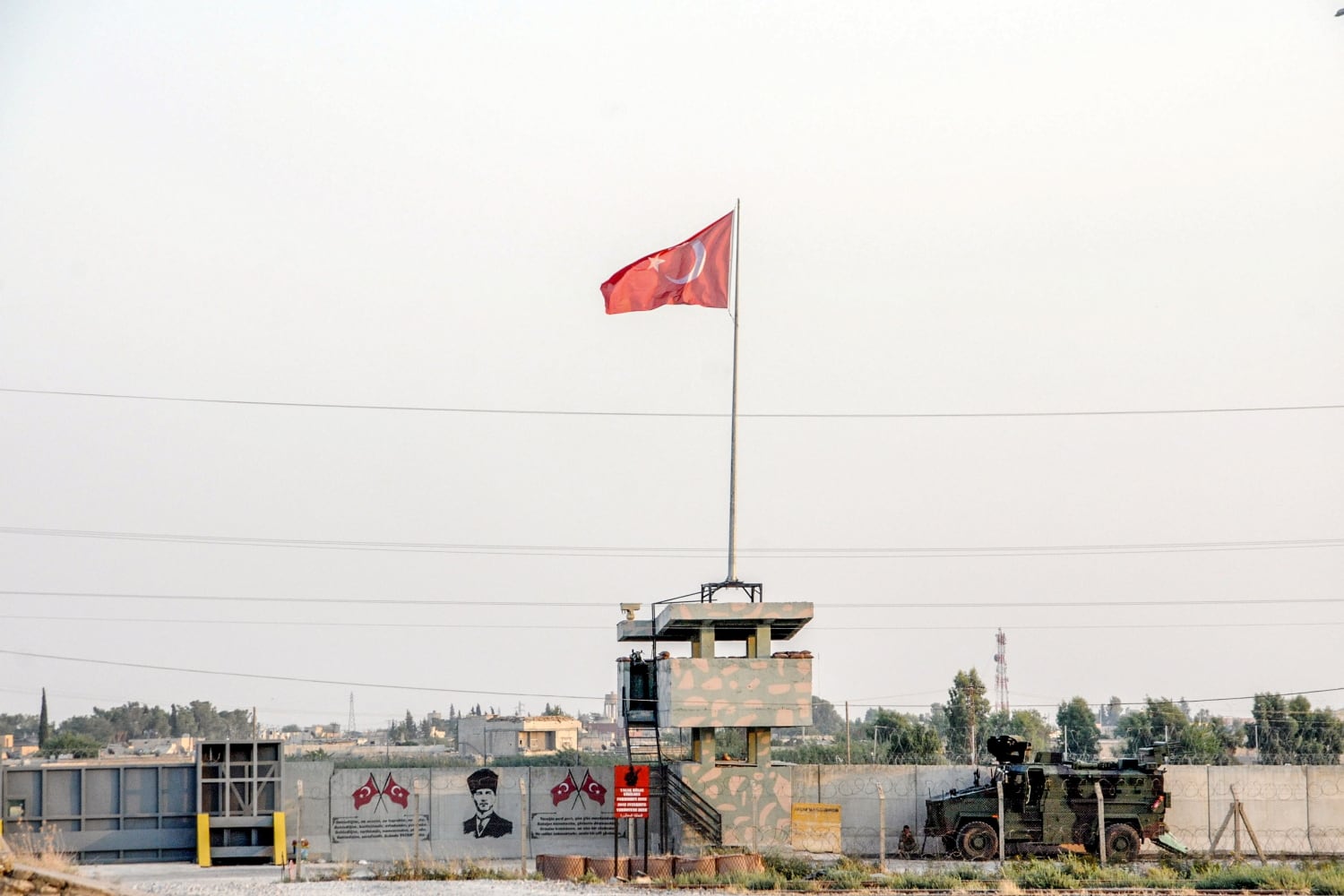
In the initial phase, Kurdish-led forces have organized withdrawals from bases along some 80 kilometers (50 miles) of the border. Khalfo’s team replaced them in bases along the border in Tal Abyad over a 75-kilometer stretch. Another sector, Ras al-Ayn, is undergoing a similar handover.
The Kurdish-led forces have also withdrawn heavy weapons — vehicles mounted with machine guns and mortar launchers — from the borders.
U.S. and Turkish helicopters have flown reconnaissance flights along the borders, while joint Turkish-U.S. patrols are planned to start Sunday.
Khalfo is looking to recruit as many soldiers as he can. Officials say those new recruits will be trained by the coalition to ensure there is no security vacuum during the implementation of new arrangements.
Cmdr. Sean Robertson, a Pentagon spokesman, said the plan in coordination with the SDF and Turkey, “maintains security in northeast Syria to counter the re-emergence of ISIS and allows the coalition and our partners to remain focused” on that goal.
Turkey refers to the area as a “safe-zone” and wants no presence for Syrian Kurdish fighters along the 50-mile stretch. It says Turkish soldiers should be in charge of the safe zone, which it says should be at least 30 kilometers (19 miles) deep, in some cases more. That would mean taking up most of the Kurdish-majority urban centers as well as border areas.
Turkey is hoping that some of the 3.6 million Syrian refugees it is hosting will return to the area.
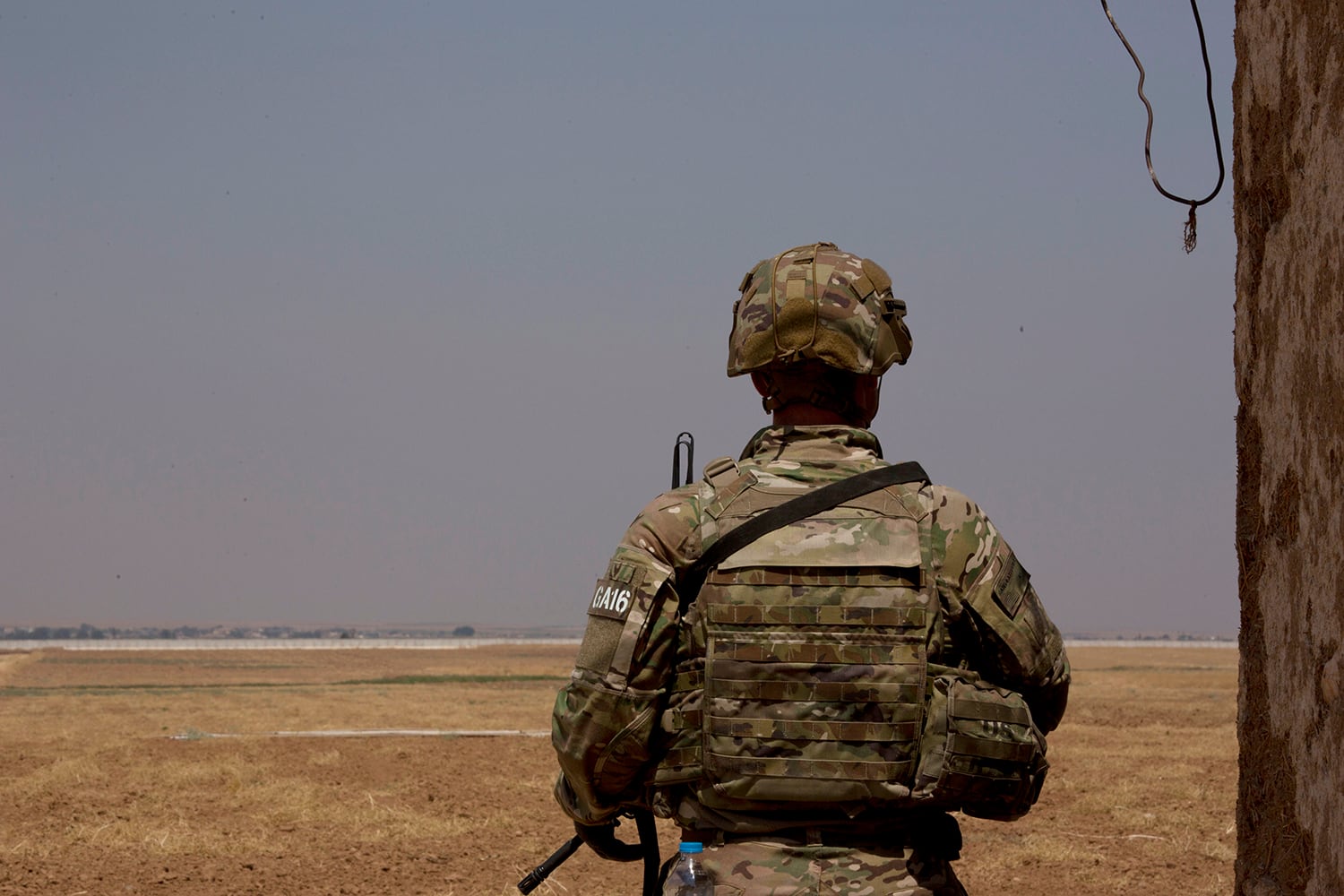
Washington and the Kurdish-led forces say a “security mechanism” is taking shape.
The Kurdish-led forces say they won’t accept Turkish bases in territories they control — already a de-facto no-fly zone because of the U.S.-led coalition forces’ presence. They say they would only accept Ankara’s inspection of the area so long as the coalition is involved. They have agreed with the Americans that the area should be between four and 15 kilometers deep and say they are already negotiating the return of a number of Syrians native to the area.
“When it comes to politics, we don’t know what goes on. In the morning it is something and in the evening it is another,” said Khalfo, who once commanded a battalion in the fight against IS in his town and other areas. He shyly put the yellow badge of his new military council on his left shirt pocket. A flag with the new council’s name was hoisted on his pick-up car.
One of Khalfo’s fighters said the removal of fortifications won’t stop the tension but would only leave the force exposed.
RELATED
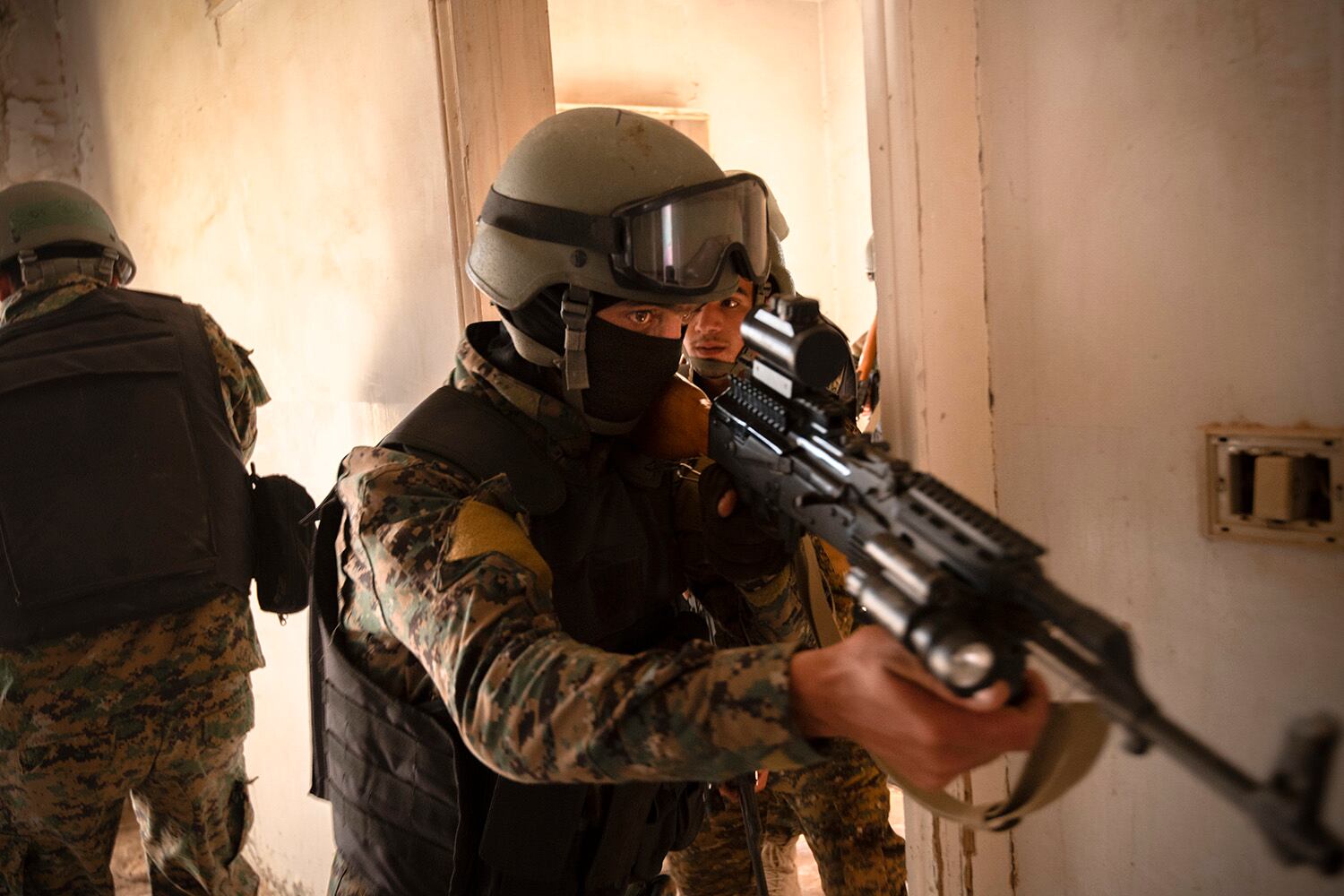
A few miles from the base, the armored vehicles and the SDF coordinator stopped to check a deep trench on the left side of the road. Coordinates shared by Turkey with U.S. troops identified the depression as a possible threat, the SDF commander said. On close inspection, it was clear the trench was more like a bunker, prepared for civilians to take cover in case of an attack.
The convoy moved on. An SDF official was on site, coordinating with the U.S. troops and the new commander.
Robertson, the Pentagon spokesman, said the coordination on the ground demonstrates a “good-faith” effort by the SDF to implement the security mechanism.
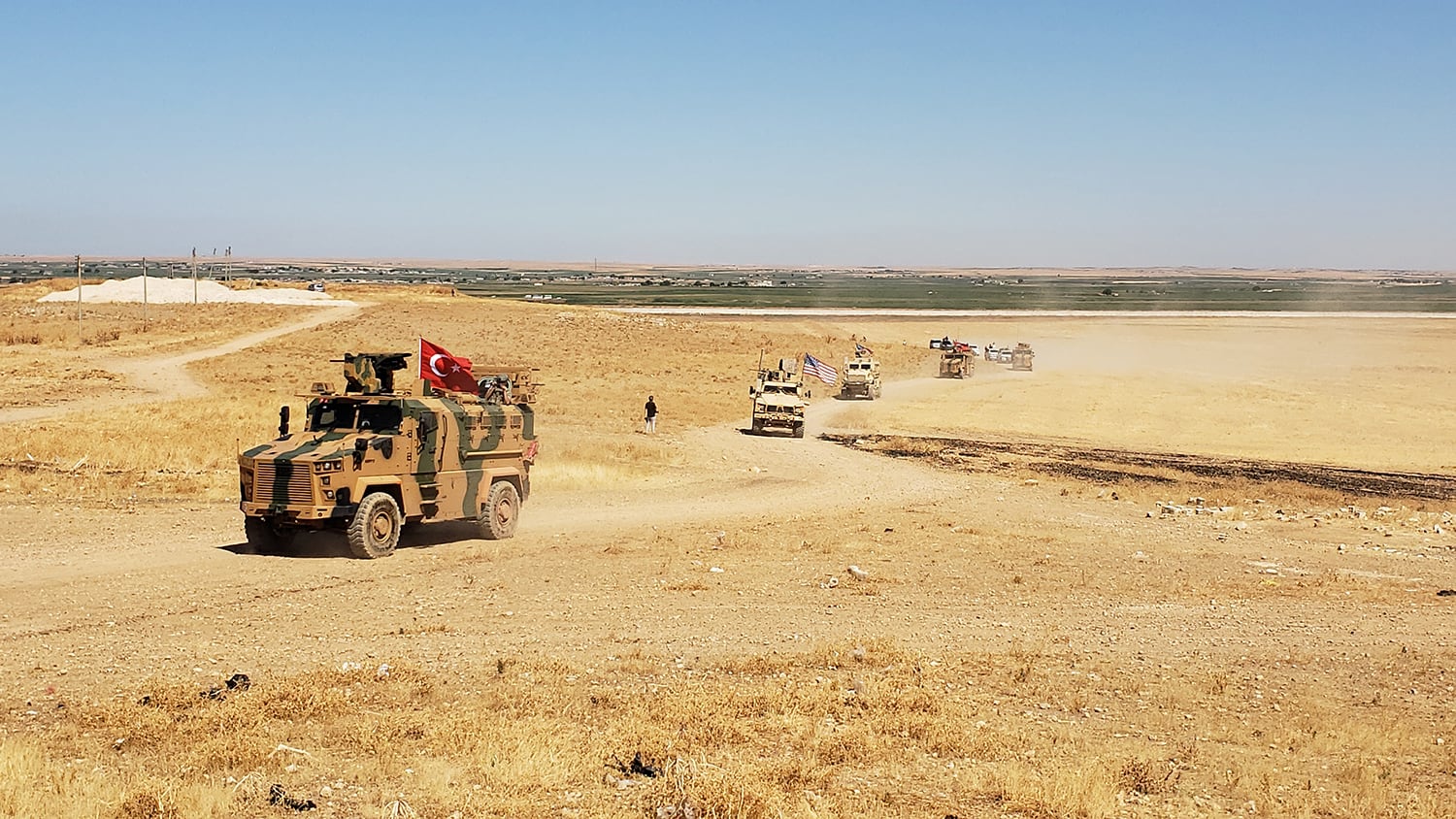
“Today, U.S. and Turkish military forces conducted a joint ground patrol inside the security mechanism area in northeast Syria," said Col. Myles Caggins III, a coalition spokesperson, in a statement to Military Times. "Our allies observed first-hand progress on destroyed YPG fortifications and areas where YPG elements voluntarily departed the area. Today’s patrol maintained security within the area and demonstrates our continued commitment to address Turkey’s legitimate security concerns, while also allowing the coalition and our SDF partners to remain focused on achieving the enduring defeat of Daesh (ISIS).”
While officials say no civilians would be displaced by the new security arrangements, residents are bracing for a new round of instability.
Down the road, farmers in al-Tawila village were watching a volleyball match between two local teams around sunset on Friday. The score was 14-7. Two Arab men, Hussein and Abdullah, sat with their backs to the wall cheering for the winning team, ignoring the passing U.S. convoy and concerns over possible violence.
Over the last eight years, different groups took control of their area; starting with rebels, IS militants and lastly the Kurdish-led administration. The two men, who spoke without giving their last names for security reasons, said they have not left their homes despite the change of hands and have no plans to leave despite the threats.
Both said Turkey let foreign IS fighters into Syria through its porous border but built a wall along most of the shared frontier when the Kurdish-led forces took over, accusing Turkey's President Recep Tayyip Erdogan of having plans to seize Syrian land. "Now he's fighting terrorism?" scoffed Abdullah.
Hussein said he can’t access his farm near the border at night for fear he would come under fire from Turkish troops.
Although both agreed the Kurdish-led administration brought security, they say only the return of the Syrian government would bring about stability and prevent violence.
“For now, we will sit tight and be shaped like mud by whoever comes here,” said Hussein.





